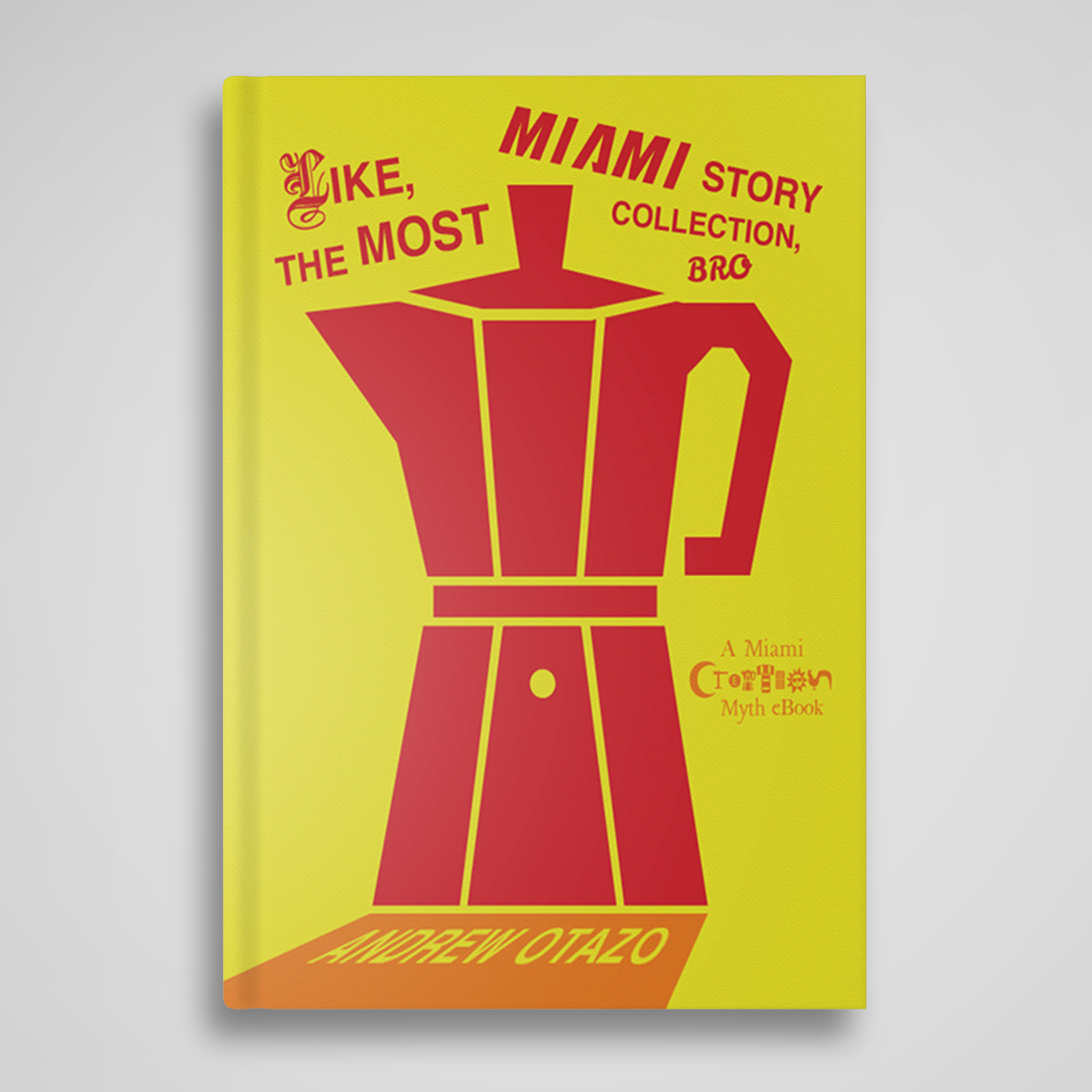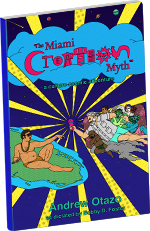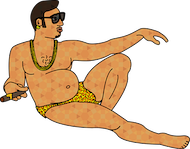
As greater cultural awareness has spread among the U.S. population, many previously acceptable comments have become faux pas. They have been recognized as the sort of deeds that, upon even cursory examination, are often perceived as insulting, demeaning, or just generally ass-backwards. These actions include, but certainly are not limited to:
- Don’t touch a black woman’s hair.
- Don’t refer to Asians as “Orientals.”
- Don’t assume that all black people were raised by single parents or have been in jail.
- Don’t ask who in a gay couple is the top.
- Don’t ask a lesbian couple who the “man” is in the relationship
- Don’t refuse to call a trans person by his/her/their preferred pronoun or name.
- Don’t assume that all people from the Middle East are Arabs (see: Persians, Turks, Pashtuns, Kurds, etc.).
- Don’t assume that all people from Asia are Chinese (see: Koreans, Filipinos, Thai, Mongolians, etc.).
- Don’t assume that all people from Latin America are Mexican (see: Dominicans, Colombians, Paraguayans, Costa Ricans, etc.).
These very basic rules, though often ignored, are at least in the zeitgeist of many who profess not to be culturally myopic. Unfortunately, it has been my experience, and that of many of my Cuban-American peers, that no such basic set of principles is honored when we interact with individuals from other ethnic groups. I cannot necessarily place all the blame on those people, however. Cuban-American culture is very geographically concentrated, and if you live in those locales, then you will probably never understand the comments and topics we consider to be in bad taste. As such, I have decided to compile a (by no means exhaustive) list of things I believe strangers who do not have “confianza” with a particular Cuban-American should not mention unless you wish to come off as paradigmatic douchebags.
- Do not go into a diatribe about how you need to see the “real” Cuba before the U.S. goes in and “ruins everything.” Most things are already ruined. The houses and streets are falling apart, the electricity routinely goes out, food is scarce, and almost no one can afford to buy that smartphone/nice pair of jeans/or basically anything else that you are currently carrying on your person because the average salary is $25 a month. Cuba is not a zoo exhibit you can leisurely walk up to and tap on the glass. The Cuban people have the right to buy and use anything they want. A corner Starbucks does not equate to Mickey Mouse taking his costume off before you, no matter how much it might ruin your fantasy of a communist Disney World.
2. Stop talking to me about how much you want to lie on a Cuban beach. I don’t want to join you. I don’t care about your impending sunburn. I care about my family still on the island. If I go, I will not be lying next to you, sipping a daiquiri. I will visit my aunts, uncles, and family graves. There are more important things on that island than your ideal vacation.
3. On a related note, stop insisting it isn’t fair that you can’t visit Cuban beaches. Cuban citizens were denied access to tourist beaches for 47 years. The vast majority of the population cannot afford to spend a single night in a Cuban hotel. You can wait.
4. Do not tell me how much you love Fidel or Che. Many of our family members were murdered by those two. My uncle was jailed and tortured for years. Have you ever considered walking up to a Cambodian and extolling the virtues of Pol Pot? No? What gives you the right to do the same to a Cuban-American?
5. Not all of us came to the U.S. on a raft. Both my parents arrived on planes. Many others traveled to third countries, crossed the Mexican border, won a lottery, were reunited with family members, or were born in the U.S. If the Cuban-American before you did travel to South Florida in a raft, he or she risked dehydration, exposure, drowning, illness, and starvation to make it to this country, and might not want to relive the experience with you.
6. Stop with the swimming/rowing/paddling jokes. Do you have family members who drowned in the Florida Straits? Many Cuban-American families do. Tens of thousands lost their lives trying to make that crossing just for the chance of greater economic and political freedom. See #5 if you’ve already forgotten how they died.
7. Do not ask a Cuban-American if he/she has been to Cuba. Many of us have. Many more have not. The topic of whether one should visit the island can be very contentious. The Cuban-American before you would probably rather have a nice, social night out rather than describe the complicated and painful rifts in his/her community to a stranger. Furthermore, visiting or abstaining from the island does not make anyone more or less “Cuban.” They have their reasons. They don’t need to explain them to you.
8. Stop going on about the cars from the 1950s. Yes, they are beautiful. No, the Cuban people do not drive them out of nostalgia. They drive them because they have no other cars, spare parts, or choice. See #1 about your desire to experience a Cuban fantasyland.
9. Cuban-American culture is typified by sweet, greasy, and hearty food. The following are not Cuban dishes: tacos, burritos, tortillas, flautas, nachos, enchiladas, etc. They are Mexican. You like spicy food. That’s great. We do not cook with those spices.
10. Stop calling us “Spanish.” You are correct in noticing that we speak the Spanish language. However, Spain is a country. Cuba is an entirely different country. We are no more Spanish than you are British.
11. When we explain that we are Cuban-Americans, do not immediately retort with: “But you don’t look Cuban!” How many Cubans do you know? Pitbull, Scarface, and Marco Rubio? This is analogous to you going overseas and having someone insist that you can’t possibly be American because you don’t look like Lebron James. Cuba was a destination for immigrants from around the world. As a result, Cuban-Americans come in every complexion and background imaginable: redhead, blonde, black, white, brown, Asian, Jewish, Arab, everything.
12. Stop asking me about the embargo. I’m tired of reenacting the same conversation I’ve had infinite times as soon as I mention my heritage. Furthermore, my views are not representative of anyone other than myself.
13. Stop going on about how you love our “caramel complexion.” Firstly, I and many other Cuban-Americans are probably lighter than you. Secondly, stop referring to us—or any other ethnic group, for that matter—as if we were food.
14. Stop talking about how you can’t wait to hook up with “all the hotties in Havana.” Many Cuban men, women, and children enter sex work because it is the only way they can access the hard foreign currency they need to feed themselves and their families.
Miami’s Cuban-American culture is no more crazy or passionate than you might be about politics, GMOs, animal rights, the environment, free trade agreements, tax reform, campaign funding, gun rights, etc. It is not monolithic. Nor is it definitively representative of all Cuban-Americans (sizable populations live in New York, California, and all major metropolitan areas).
If you want to learn about Cuba, Cubans, and Cuban-American culture, with all its intricacies, complexities, and contradictions—go ahead: “drink a chair” next to us. Many are willing to explain it to you. Just be prepared for a very long conversation involving you mostly listening in silence. But, if you want to goad us into affirming your preconceived notions about Cuba, Cubans, or Cuban-American culture, then vete pa’l carajo.
If you like our stories, check out our latest book.
 Andrew Otazo
Andrew Otazo
'Miami Creation Myth' author Andrew Otazo has advised officials on Cuba policy, worked for the Mexican president, fired a tank, and ran with 30lbs of trash.
Check out the first free chapter of Andrew’s upcoming book here.




